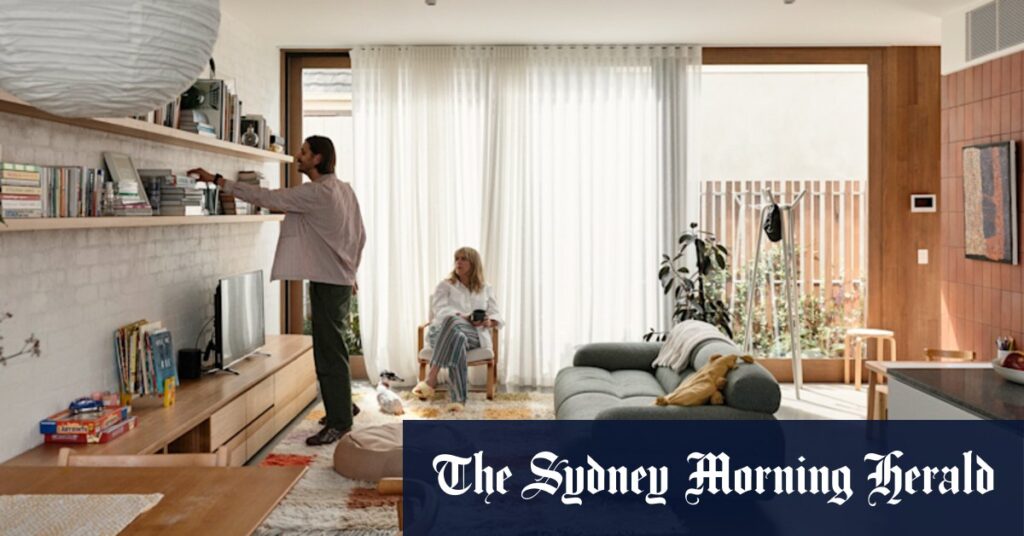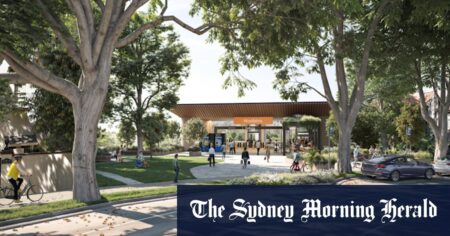A parliamentary inquiry has recommended further reform, but Planning Minister Sonya Kilkenny has said an update would only occur next year – four years after the committee’s report.
Sinclair stressed that Neometro believed the regulations were good for raising the lowest common denominator in apartment design, but wanted tweaks to allow for creative housing solutions.
Neometro directors Lochlan Sinclair and James Tutton.Credit: Justin McManus
“I totally understand that the purpose of regulation is to increase the quality across the board, but if not used with consideration, it can equally stifle innovation and the ability to offer different things,” he said.
“We’ve got a housing challenge, and that’s going to require innovation on a number of levels, including design.”
Sinclair appreciated that the state government had unveiled a new Great Design Fast Track pathway last year, under which it would take over planning controls for townhouses and apartments that it deems to be of good design to slash approval times and encourage more “affordable architectural heritage”.
Loading
But while supportive of that reform, Sinclair said Neometro was still not confident to invest under that pathway as it remained untested.
He said rewards for architectural excellence needed to be spread throughout the planning system, not just through this specialised, exceptional program.
“It’s in its infancy, but that work needs to continue to take that level of expertise all the way through to local councils,” Sinclair said.
Tutton said Neometro’s longevity was tied to medium-density apartment and townhouse developments that prioritised physical and mental health with adequate lighting, walkability, airflow and open spaces that try to foster a community.
He admitted they were not great examples of affordability, as many were built in coveted suburbs like Brunswick. Online listings show many cost millions of dollars.
But Sinclair said more flexible design standards could still boost affordability by allowing for greater housing variety, encouraging more innovative, cheaper duplexes, for example.
The directors said slow council approvals continued to hurt housing costs, despite recent Victorian planning reforms to boost density and which have drawn local government ire.
Loading
Still, Tutton believes Melbourne is “catching up with the rest of the world” in increasingly adopting apartment living.
“I think the greater knowledge around apartment design from a consumer perspective will push the market in a really positive direction,” he said.
A state government spokesperson said Victoria built and approved thousands more homes than any other state.
“But there is more to do,” they said. “That’s why we’ve introduced bold reforms to boost housing supply – including new pathways to fast-track housing developments, building more homes close to trains and trams, slashing stamp duty for off-the-plan apartments and townhouses, and streamlining townhouse approvals.
“Under the Liberals, there were no minimum design standards – which resulted in the Liberals approving poor quality homes with no regard for who lived in them.”
The Morning Edition newsletter is our guide to the day’s most important and interesting stories, analysis and insights. Sign up here.
Read the full article here

















